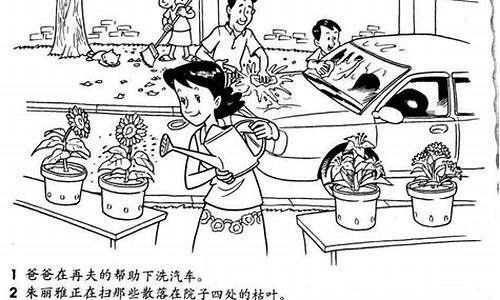1.whole是什么意思
2.all和whole的区别

whole 可以作为形容词,意思是 完整的,整个的,全部的
He stayed at home for a whole day yesterday.
whole 还可以作为名词,意思是 整个,全部
例如: the whole of China 全中国
whole是什么意思
whole: [ h?0?5ul ]
a. 整个的
n. 全部
词形变化:
名词:wholeness
例句与用法:
1. The whole country was anxious for peace.
全国上下都渴望和平。
2. I just threw the whole caboodle in the back of the car.
我把所有东西都扔到汽车後座上去了。
英英解释:
名词whole:
1. all of something including all its component elements or parts
2. an assemblage of parts that is regarded as a single entity
同义词:unit
形容词whole:
1. including all components without exception; being one unit or constituting the full amount or extent or duration; complete
2. (of siblings) hing the same parents
3. including everything
同义词:overall, total
4. wholly unharmed
同义词:unharmed, unhurt, unscathed
5. not impaired or diminished in any way
同义词:intact
6. exhibiting or restored to vigorous good health
同义词:hale
7. acting together as a single undiversified whole
同义词:solid, unanimous
副词whole:
1. to a complete degree or to the full or entire extent (`whole' is often used informally for `wholly')
同义词:wholly, entirely, completely, totally, all, altogether
all和whole的区别
whole 英[h?l] 美[ho?l]
adj. 完整的; 全部的,所有的;
n. 全部; 整体,整个;
[例句]He has said he will make an apology to the whole of Asia for his country's past behiour
他已表示要为自己国家过去的行径向全亚洲道歉。
[其他] 复数:wholes
all和whole的区别为:意思不同、用法不同、侧重点不同。
一、意思不同
1、all:所有,全部,全体,一切,全部的,整个的。
2、whole:全部的,整体的,完全的,所有的。
二、用法不同
1、all:all用作形容词的基本意思是“所有的,全部的”,指两种情况:一是表示概括起来考虑的全体,此时与不可数名词或单数形式的可数名词连用; 二是表示把各部分一个一个地来看的全体,此时与复数形式的名词连用。
2、whole:whole作形容词时基本意思是“齐全的,整体的,全部的”,指事物是不可分割的,没有任何东西被省略、减少或排除,作此解时,在句中只能用作定语。
三、侧重点不同
1、all:要放在冠词、指示代词、物主代词等之前。
2、whole:whole应放在这些词之后。









